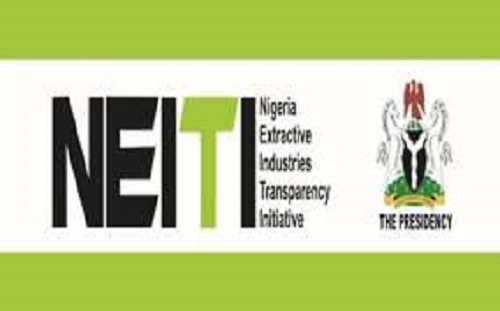Nigeria has urged fellow resource-rich nations to transform the Extractive Industries Transparency Initiative (EITI) from a routine data-reporting checklist into a powerful driver of reform, accountability, and inclusive growth.
The Executive Secretary of the Nigeria Extractive Industries Transparency Initiative (NEITI), Dr. Orji Ogbonnaya Orji, made the call while addressing an international EITI Peer-Learning Session in Amman, Jordan. The conference — organised with support from the World Bank — was designed to equip the Republic of Iraq with global lessons and practical models for implementing the EITI.
Dr. Orji explained that Nigeria’s EITI journey provides a living case study on how the initiative can be adapted to local contexts to confront the governance challenges of natural resource wealth.
“NEITI’s experience has shown that the EITI can deliver far more than public disclosure. It is a platform for institutional reform, citizens’ dialogue, accountability advocacy, and process re-engineering,” he stated.
He emphasised that peer learning is central to the EITI process, adding that Nigeria is committed to sharing its journey with Iraq and other countries in the Middle East while also learning from their experiences to strengthen ongoing reforms in the oil, gas, and mining sectors. Dr. Orji welcomed the invitation extended to NEITI to share its expertise as Iraq joins the EITI as an implementing country.
Nigeria’s Unique and Replicable Innovations
Dr. Orji highlighted several innovations that have shaped Nigeria’s success story and could guide other resource-rich nations:
- Statutory Backing — NEITI Act (2007): One of the few EITI countries to enshrine transparency in law, giving reforms permanence across administrations and insulating them from political cycles.
- High-Impact Multi-Stakeholder Group (MSG): Chaired by the Secretary to the Government of the Federation and composed of leaders with influence, credibility, and technical depth — elevating EITI beyond compliance to national policy relevance.
- Professional, Independent Secretariat: A technically skilled Secretariat that produces globally respected audits, policy briefs, and reform analyses informing fiscal planning and investment.
- Inter-Agency Task Team of 21 Anti-Corruption & Oversight Bodies: A pioneering Nigerian model linking EITI disclosures directly to enforcement, fiscal justice, and anti-corruption outcomes.
- Policy Brief Culture: Transforming complex audit findings into concise, actionable briefs used by legislators, MDAs, and development partners — turning transparency into reform decisions.
- Open Data & Technology Platforms: From the Beneficial Ownership Register to the soon-to-launch NEITI Data Center, Nigeria is mainstreaming digital tools that empower citizens, investors, and regulators.
- Integration with Fiscal Reforms: NEITI data has shaped critical policies such as the Treasury Single Account (TSA), fuel subsidy reform, and debates on subnational debt and revenue distribution.
- Energy Transition & Climate Accountability Framework: Embedding emissions tracking, stranded-asset reporting, and just transition planning into EITI reporting — positioning Nigeria as a global reference point for linking transparency to climate goals.
These approaches have delivered tangible results — including the recovery of significant unpaid revenues, disclosure of $6.018 billion in outstanding company liabilities, and credible data that reshaped national debates on fuel subsidy removal, debt sustainability, and the investment climate. NEITI’s work now informs Nigeria’s energy transition strategy, strengthens host community development, and drives accountability in a sector long plagued by opacity.
“Few countries have walked this path as far as Nigeria,” Dr. Orji noted. “We built and anchored implementation on a strong legal foundation to institutionalise reforms. Peer learning offers every EITI country the chance to adapt and apply lessons that work.”
He reaffirmed Nigeria’s pledge to deepen reforms at home while sharing tested models with the global EITI family, urging resource-rich countries — particularly those battling the “resource curse” — to see transparency under the EITI not as a compliance checkbox but as a dynamic governance platform.
“Natural wealth must serve citizens, not elite interests. Nigeria’s EITI experience shows that with courage, credible data, and institutional strength, resource dependence can become a force for stability and inclusive growth,” he concluded.
Nigeria joined the global Extractive Industries Transparency Initiative in 2003 and began implementation in 2004. Its distinctive adaptation of the EITI to local realities continues to draw global interest and inspire peer-learning partnerships.


Comment here